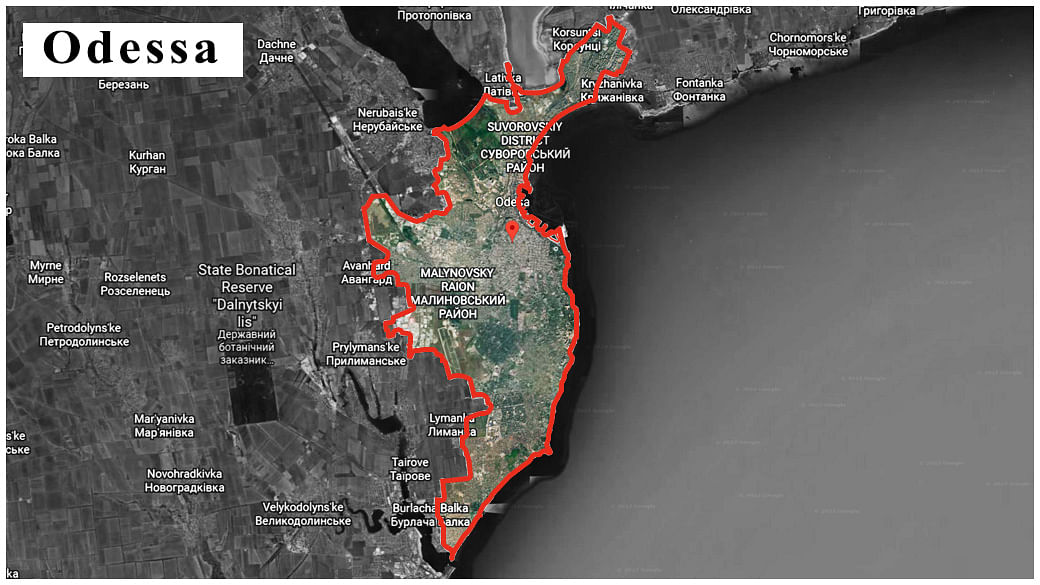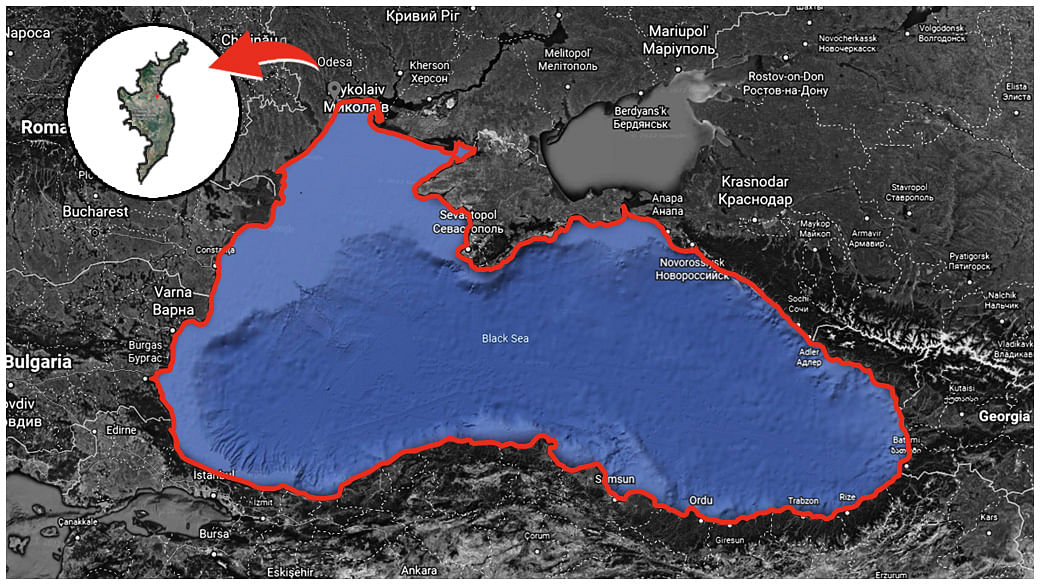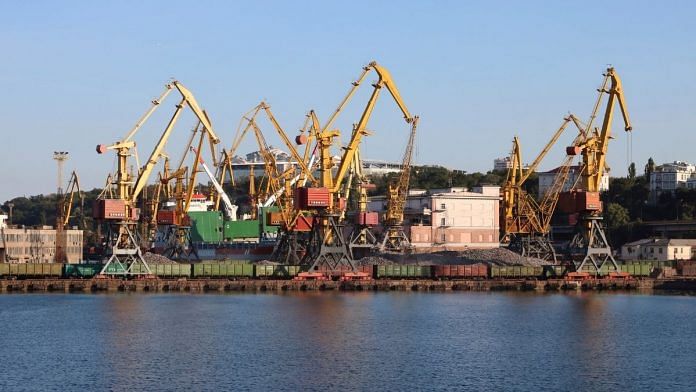New Delhi: After weeks of disruption in the economic activity due to the Russian invasion, Ukraine’s biggest port Odessa may see a slim path towards trade normalcy through Russia’s Baltic neighbour.
In a press conference with British Foreign Secretary Liz Truss, Lithuania Foreign Minister Gabrielius Landsbergis Tuesday said his country is mulling a “coalition of the willing” to unblock Odessa and ensure the resumption of the exports of food grains from Ukraine, with Truss adding that the UK supports such a coalition “in principle”.

According to Lithuania’s state broadcaster, Landsbergis clarified that the coalition would not constitute a “no-fly zone” but a humanitarian mission to address a “global food security issue”, despite the need for NATO involvement.
Landsbergis emphasised that Turkey’s support would be key to the success of the coalition, as it is a major importer of Ukrainian grains.
“There can be no agreement without Turkey,” Landsbergis noted. “Turkey must be part of this coalition.”
While it is a long way away from becoming a reality, Lithuania’s coalition announcement is significant for Ukraine’s Black Sea ports including Odessa, as Russia has reportedly enforced a naval blockade. Citing the US government declassified intelligence documents, The Washington Post has claimed that since the war began, the Russian navy “effectively controls all traffic in the northern third of the Black Sea, making it unsafe for commercial shipping”.

Even though a solution to the blockade may be a pipe dream, it has already had damaging effects on global food security.
Threat to global food security
Before the Russian invasion, Ukraine used to export nearly 6 million tons of wheat and oilseed, but after Moscow initiated a blockade of the country’s ports. Their exports crashed to about 200,000 tons in March. The grains used to be exported in bulk to the Middle-East and North Africa (MENA) region from Ukraine’s ports, especially Odessa.
As a knock-on effect of the blockade, many world leaders including Ukraine’s President Volodymyr Zelenskyy are warning of massive threats to global food security as supplies diminish, especially for North-Africa.
UN secretary-general António Guterres last week said shortages of grain and fertiliser caused by the war, and the larger impacts of warming temperatures and pandemic-induced supply-chain fissures could “tip tens of millions of people over the edge into food insecurity”.
The World Bank has also announced a $12 billion fund to mitigate the food security issues caused by the Russia-Ukraine war.
European Commission President Ursula von der Leyen at Davos Tuesday accused Russia of weaponising food supplies not only by “blockading Ukrainian ships full of wheat and sunflower seeds” but also by “confiscating grain stocks and machinery” in the parts of Ukraine that it has already occupied.
Moreover, the protracted blockade has led to fears of an oncoming famine in Ukraine, with the summer harvest approaching but food being abandoned to rot. AFP has reported that as it stands, Odessa has been storing over 4 million tons of grain which dates to the previous harvest.
“We won’t be able to store this new harvest in any way, that’s the problem. People will simply die of hunger,” the port city’s mayor Gennady Trukhanov told the agency.
Efforts to circumvent the blockade at Ukraine’s ports via rail networks also pose severe logistical challenges. For most European countries, shifting the supply chain onto rail during a similar blockade would be easier as they all function on relatively similar gauges. However, Ukraine uses completely different gauges than most EU nations, this would lead to multiple bottlenecks around Ukrainian borders as the trains would try to enter other European countries.
Blockade, sanctions reshaping Russia’s domestic economy
The blockade is not only causing disruptions to supply chains globally but sanctions in relation to the blockade are also reshaping Russia’s economy.
Domestic suppliers of Pollock fish — a key ingredient in McDonald’s filet-o-fish burger — for instance, used to selling to global buyers are now being ostracised from international markets due to the war. As a consequence, domestic demand is increasing, covering for the gaps left by international buyers.
“Russia’s pollock companies are expecting to increase their domestic supplies, supported in part by a possible decline in seafood imports,” said a report in IntraFish, one of the world’s largest news portal for the global seafood industry.
The report further points out that domestic demand for Pollock has almost compensated for Chinese imports, which used to cover a large chunk of the exports for Russia.
While this may be good in the short term, it may not necessarily bode well for Russia’s trade deficits.
However, there will most likely be larger supply-chain issues for Russian businesses due to the blockade beyond the swift posturing by Russia’s fish industry.
Also read: Ten days after they beat a hasty retreat, Russian troops are back in Kharkiv



